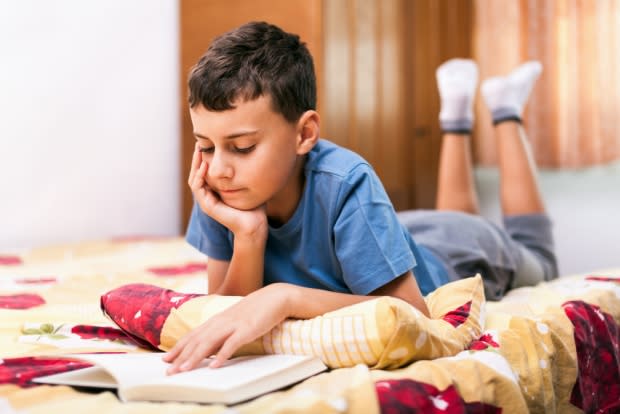How to keep kids safe when they're home alone for March Break
The beginning of March Break means more children will be alone at home, and parents may be nervous about leaving their kids on their own.
We asked a local children's expert and a police officer for their tips on how to keep kids safe.
Are they ready?

"We tell parents to think back. Are there moments when their children are able to handle small responsibilities?" said Abe Giesbrecht, Home and Youth Resource Support for London Children's Connection.
"Simple things like, 'Can they take care of themselves even when you are home?'"
That means simple tasks such as getting themselves food, working in the kitchen, and handling phone calls or visitors with an appropriate level of maturity.
Giesbrecht is responsible for a course called the I'm Home Program, which teaches children between the ages of 10 and 12 to be safe when at home alone, before and after school.
The course also helps parents prepare their children to transition to having more independence.
Party time!
The I'm Home program not only helps young people who might be leery of spending large chunks of time at home alone, it targets children who might be feeling over-confident.
"I'll get children come in and say, 'I'm super excited! I'm just going to stay home and play video games all day, and no one's going to bother me,'" said Giesbrecht.
Some children have other false beliefs, such as thinking their friends will be able to come over or that they can just order pizza when they get hungry.
"[The course] gives them a nice reality check without scaring them," said Giesbrecht. "We get them thinking about what if a stranger comes to the door, the phone rings or the power goes out?"
Internet 'a major issue'
Police are also concerned about the Internet. Online activity can include risks ranging from bullying by peers, to adult predators trying to trick kids into meeting them or giving out personal information.
"When you get online, you need to think before you post, and you need to think before you write anything down or share any pictures or share any information," said OPP Const. Ed Sanchuk.
"If you're not prepared to share with the world don't share at all because it could come back to haunt you as you get older."
Giesbrecht agreed that the Internet can be "a major issue."
"It's also one of the favourite topics when it comes up in the I'm Home Program for both parents and kids," he said.
He said parents need to have open lines of communication with their kids, and ensure their children know that if they raise any problem, their parents are there to help.
"[They need to] see you as their advocate and not their critic. You're not going to make it worse, you're going to make it better."
Emergency back-up
A big mistake parents often make is in not having an emergency back-up plan in place.
For instance, children must have access to a phone. If the parents have given up their land line, that means they need to ensure the child has access to a fully charged cell phone, advises Giesbrecht.
The children need access to emergency contacts if the power goes out or there's a fire. And, they need a place where they can run to in their socks where it's guaranteed someone will answer the door.
Motorists: Be alert
Police also want drivers to be on alert for more kids running around outside.
"There's going to be a significant amount of traffic and pedestrian traffic on the roadways so we want to remind all motorists that they need to keep their eyes peeled," said Const. Ed Sanchuk.
"More students will be out, maybe playing in the streets, skateboarding, depending if mother nature cooperates. Just be aware of your surroundings at all times, because you never know when that young child might dart out in front of your car."
Start slow
It might be a little late for this tip, but one suggestion from Giesbrecht is to gradually introduce your child to staying at home alone by starting with small, short stints.
"Sometimes we leave them for five or ten minutes in different situations and then build up to longer stretches of time."
The bottom line for OPP is that parents, children and drivers are on the same page and are working towards a safe and enjoyable March Break.
"We need to make our safety as a priority," said Sanchuk. "I'm a parent myself. I always talk to my kids about making their safety a priority."

